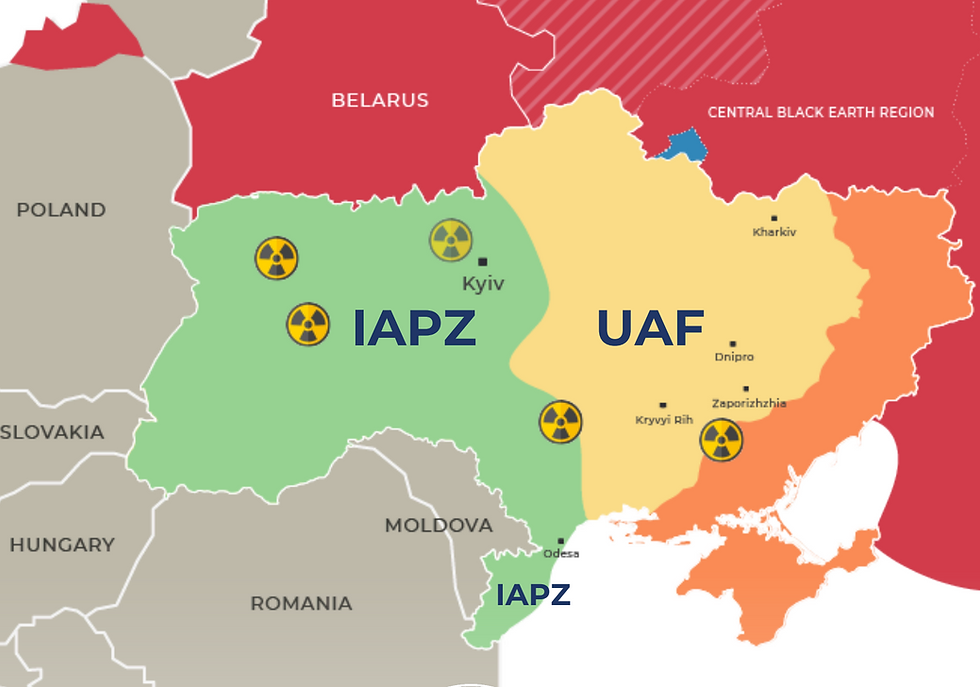The dark depths of despair in Kherson
- Jan 27, 2024
- 3 min read
By Matthew Parish

I want to tell you what life is really like for the tens of thousands of civilians who are still living in the front line city of Kherson in southeastern Ukraine. This is the point at which the Dnipro River is at its narrowest, and the Russians are only about 150 metres away on the other side of the river. There are people living on the banks of the river, right opposite Russian sniper positions, and they live behind concrete walls and steel barricades so that the Russian snipers don’t shoot them when they wake up in the mornings to have coffee and make their breakfast. They drive round town at high speeds so that Russian drones and artillery can’t lock onto their vehicles and Krasnopol artillery systems don’t blow them to pieces. That’s what living on the front line in Kherson is like.
There’s only one supermarket of significance in Kherson, and everyone is jammed in there like sardines because also it’s the only place that sells clothes or toiletries or mobile phone gadgets or any other electronic goods. It’s also a little restaurant. There’s only one bar I could find that hasn’t been bombed out. There’s only one restaurant still standing and its customers are generally soldiers. There’s a gas station; most of them have been blown up. The railway station has been blown up and everything’s been blown up. You can’t buy a ticket in the railway station because it’s all boarded up. The high street has been blown to pieces. Everything is completely blown to pieces. Cars drive around without licence plates, screeching and squealing their brakes and jumping the lights. Contemporary Kherson is like Mad Max on steroids. It’s a terrible mess and it’s heartbreaking to see people living amidst these scenes of hell on earth.
People don’t have enough warm clothes in the winter. They don’t have enough to eat and they don’t have enough heating to keep warm. As I was walking down the street in the middle of the day, all I could hear and see were explosions of Russian artillery systems. Only a handful of foreigners remain in the city and they live in primitive conditions. Most of them walk around in body armour, as do the tiny handful of journalists who make it there.
The street where I stayed was comprehensively shelled overnight. I could hear the shells raining down. My hotel was the only building on the street that wasn’t hit. The Russians fire artillery into the civilian population in the heart of the city indiscriminately, hitting pro-Ukrainian buildings but missing businesses and houses that belong to people with Russian sympathies. This isn’t indiscriminate killing and terrorism of a civilian population; it’s targeted ethnic cleansing, designed to wipe Ukrainian speakers off the face of Kherson. It’s an appalling war crime and we’re not doing anything about it.
Most of the remaining population are elderly or disabled; or they are waiting for the Russians to come back. The city is awash with rumours, paranoia and speculation about when the Russians will retake Kherson. I don’t think they will, but my view is not shared by the majority of the population who wait, gloomily, for the return of occupation. In the meantime, everything is just getting progressively more degraded and destroyed.
There is a de facto curfew at 5pm and it lasts until 8am. There are holes in the roads. I picked up as a memento of my visit a piece of shrapnel, part of a shell that had exploded just down the road and the shrapnel landed just 10 metres away from me. You risk being blown to bits or fatally wounded every day that you live and walk around in Kherson. People stay mostly indoors when they are not rushing out to buy essential provisions. There is no work. There are no jobs to do. There is very little law and order. An occasional police car is driving around but nobody knows what the Police are doing: just managing one civilian tragedy after the next. My friends and colleagues are there trying to clean up and rebuild houses after each nightly bombardment blows people’s homes to pieces. It’s an unedifying task, and it’s never-ending. This is the where civilisation stops and barbarism begins, and it’s on the corner of Europe.
I’d like to ask the politicians in the West what they’re doing about it. Because from where I’m standing, they’re doing nothing at all. Where is the aid for Kherson? Where are the western troops, the boots on the ground, that would stop this vile criminal activity by the Russian government? They’re not in Kherson. Instead they’re still in their barracks, waiting for politicians to jaw-jaw when right now it’s time instead for war-war.




